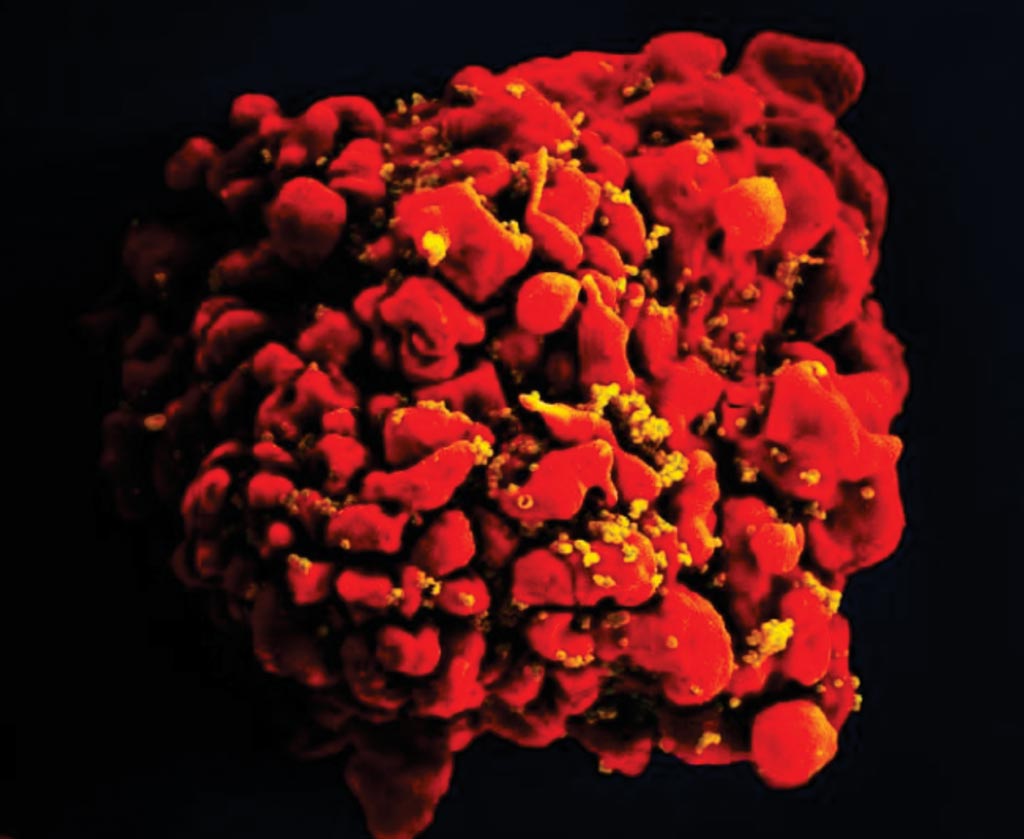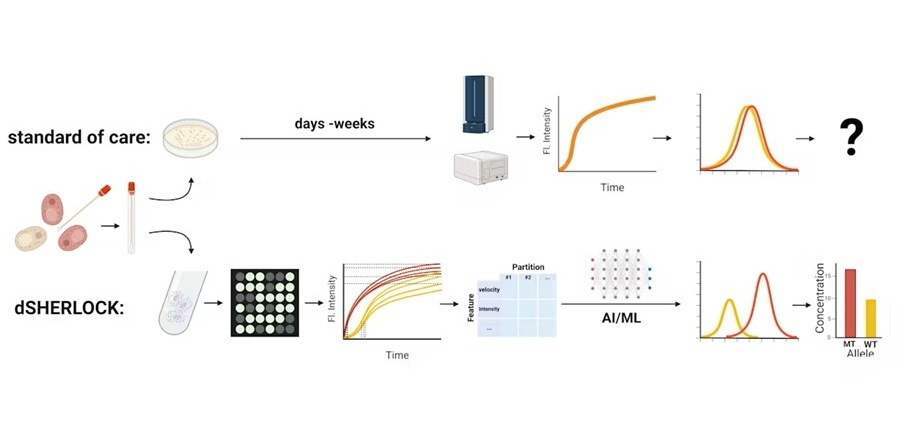Serum Albumin Level Predicts Serious HIV Events
By LabMedica International staff writers
Posted on 18 Jan 2018
Serum albumin may be used to stratify human immunodeficiency virus (HIV)–infected persons with a high CD4+ T-cell count according to their risk of serious non-Acquired Immune Deficiency Syndrome (AIDS) endpoints.Posted on 18 Jan 2018
Serum albumin is sampled in many clinical settings, and previous literature has suggested that low amounts of it are associated with HIV-related comorbidities like inflammation, liver disease and nephropathy and lower serum albumin levels are strongly predictive of mortality risk, particularly within one year.

Image: A digitally colorized scanning electron microscopic (SEM) photograph depicting a single, red-colored H9-T-cell that had been infected by numerous, spheroid-shaped, mustard-colored human immunodeficiency virus (HIV) particles, which can be seen attached to the cell\'s surface membrane (Photo courtesy of the US National Institute of Allergy and Infectious Diseases).
Scientists at the University Hospital Rigshospitalet (Copenhagen, Denmark) and their colleagues tested serum albumin as a disease marker, and assessed data from the Strategic Timing of Antiretroviral Treatment (START) study, which was conducted between 2009 and 2013. The team included baseline serum albumin measures from 4,576 patients, who represented 98% of START participants, and assessed treatment outcomes. Serious non-AIDS events were defined as cardiovascular disease, end-stage renal disease, liver disease, non-AIDS-defining cancer, death from any of those conditions, and death not related to AIDS, accident or violence.
The investigators found that in all, 71 patients had serious non-AIDS events, 63 had AIDS events and 788 were hospitalized. A higher baseline serum albumin level per 1 g/dL was associated with a decreased risk for serious non-AIDS events and for hospitalization. It was not associated with a risk for AIDS. Similar results were obtained in a time-updated model, after controlling for interleukin 6, and after excluding initial follow-up years. Serum albumin was independently associated with hospitalization but not with risk of AIDS.
Andreas Ronit, MD, of the University of Copenhagen department of infectious diseases and the lead author of the study, said, “We found that lower serum albumin was a strong predictor of serious non-AIDS events and hospitalization in seemingly healthy HIV-infected persons, with high CD4 counts. These associations were independent of traditional risk factors and various laboratory measures.” The study was published on December 13, 2017, in The Journal of Infectious Diseases.
Related Links:
University Hospital Rigshospitalet













